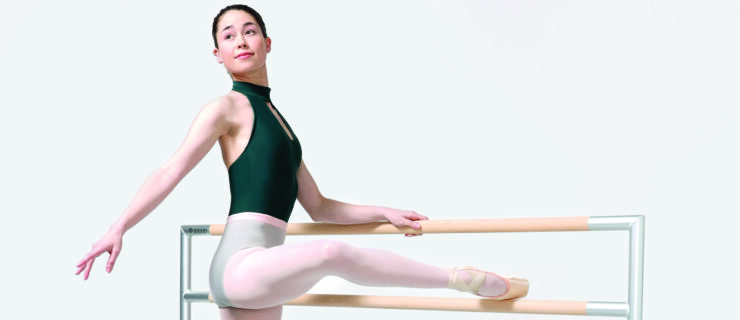How to Run Rehearsal Without Ruining Friendships
Many dance teams are student-run, and leading your peers can be challenging! How can you strike the perfect balance between fun and hard work in order to run a positive, productive rehearsal? DS spoke with two veteran instructors at United Spirit Association (USA) officer camps for advice on ensuring that things run smoothly.
Know your role.
A title like “captain” means you have responsibilities. Long before your first rehearsal, sit down with your studio director or team advisor and define your duties. Are you expected to run warm-ups and across-the-floor exercises? Will you choreograph everything or share responsibilities with other leaders? When you know what’s expected of you, you’re in a better position to deliver.
Plan beforehand.
Too many instructors walk into rehearsal unprepared, which leaves dancers frustrated. Karla Aaron, USA Camp and Competition director and a high school guidance counselor in California, recommends creating a lesson plan broken into 15-minute increments to avoid wasting time. Choreograph across-the-floor combinations and review sections you plan to clean the night before to prevent on-the-spot consultations.
Arrive early.
Show your dedication by arriving at least 20 minutes early to rehearsal. Also, if you have extra responsibilities that need attention (organizing pep rallies or fundraising), do some of it in the studio before rehearsal instead of at home, suggests Nicole Foisy, USA Dance/Drill program director. This way, your dancers witness the extra work you put into the team without you having to mention it—earning you instant respect.
Transform jealousy into opportunity.
Jealousy issues can arise when dancers feel like they’re not being used to their full potential. Remind each member how important she is: “As a leader, the last thing you want to do is alienate people,” says Foisy. Tailor specific assignments to team members’ strengths: A great turner can help demonstrate fouettés, while a talented choreographer can help with a pep routine.
Lead by example.
It’s easy to demand respect by nagging or talking down to others, but commanding respect by showing commitment and earning your position is more effective and will create a positive environment. Aaron recommends establishing a leader’s demeanor when you walk in the door: Be calm, collected and on-task.
Watch your tone.
Without yelling or raising your voice, speak from your diaphragm to lead rehearsal with authority and positive energy. Aaron advises speaking in inclusive pronouns: Using words like “we” and “our”—instead of “you guys” or “my team”—helps remind everyone that you’re all in it together.
Have a set warm-up.
If dancers are familiar with your warm-up, they can focus on stretching their muscles rather than trying to follow. This gives individuals time to acclimate, settle into the rehearsal mindset and clear their heads for the day’s work.
Keep everyone informed and accountable.
After warm-ups, explain your goals for the day. “Say, ‘You know how much we have to get done—you have to help me do it.’ Tell the team in advance, so they’re on the same page as you,” says Foisy. Once everyone knows the day’s objectives—and feels responsible for accomplishing them—they’ll be more cooperative and less off-task.
Avoid body-language blunders.
“Your body language speaks volumes,” explains Foisy, so be mindful of it when you’re instructing or cleaning routines. “Don’t sit while they’re dancing. You get water breaks when they do. They’ll notice little things like that,” she says. “It doesn’t take a big sweeping speech to make your team respect you.” Perform as much as possible if you’re in the routine. If you have fellow leaders, switch off who’s watching and performing.
Keep criticism short and sweet.
“It’s difficult to give corrections without people taking them personally,” notes Foisy. When you give a correction, state the problem and its solution quickly, and move on to the next statement without harping on it. (“Jane, make sure you bring your arms up on 5 instead of 4.”) Also, establish early on that the only appropriate response to constructive criticism is to say “thank you,” because criticism’s goal is to make the whole group look its best.
Be specific.
While you may find it easier to give general comments during cleanings, it hurts the routine in the long run. “You need to be clear about who isn’t being clean,” explains Foisy. “The team is going to get irritated if you make everything a generality, and it’s only one or two people doing it wrong.” Keep in mind that comments should lead to improvement—always try to offer a solution to the problem. If you find yourself focusing on one dancer repeatedly, approach her before or after rehearsal to offer to work one-on-one.
Deal with know-it-alls.
Sometimes, dancers will want to correct one another, which can turn into nitpicking sessions. Prevent their good intentions from subverting your leadership by encouraging dancers to ask constructive questions (“Can you clarify what count the kick is on?”) rather than make destructive comments (“Karen is kicking on the wrong count.”).
Don’t discipline.
As a young leader, it’s not your duty to reprimand your peers—this creates unnecessary conflict. When a problem occurs, relay information to your biggest ally—your advisor or studio director. Adults should handle disciplinary actions whenever possible. Otherwise, your peers may view your actions as a power trip.
End rehearsal on a positive note.
Lead a short cool-down to wrap up and refocus. Summarize the day’s accomplishments, remind the group of what still needs work and thank everyone for their time. If you respect their time and effort, they’ll likely reciprocate.



